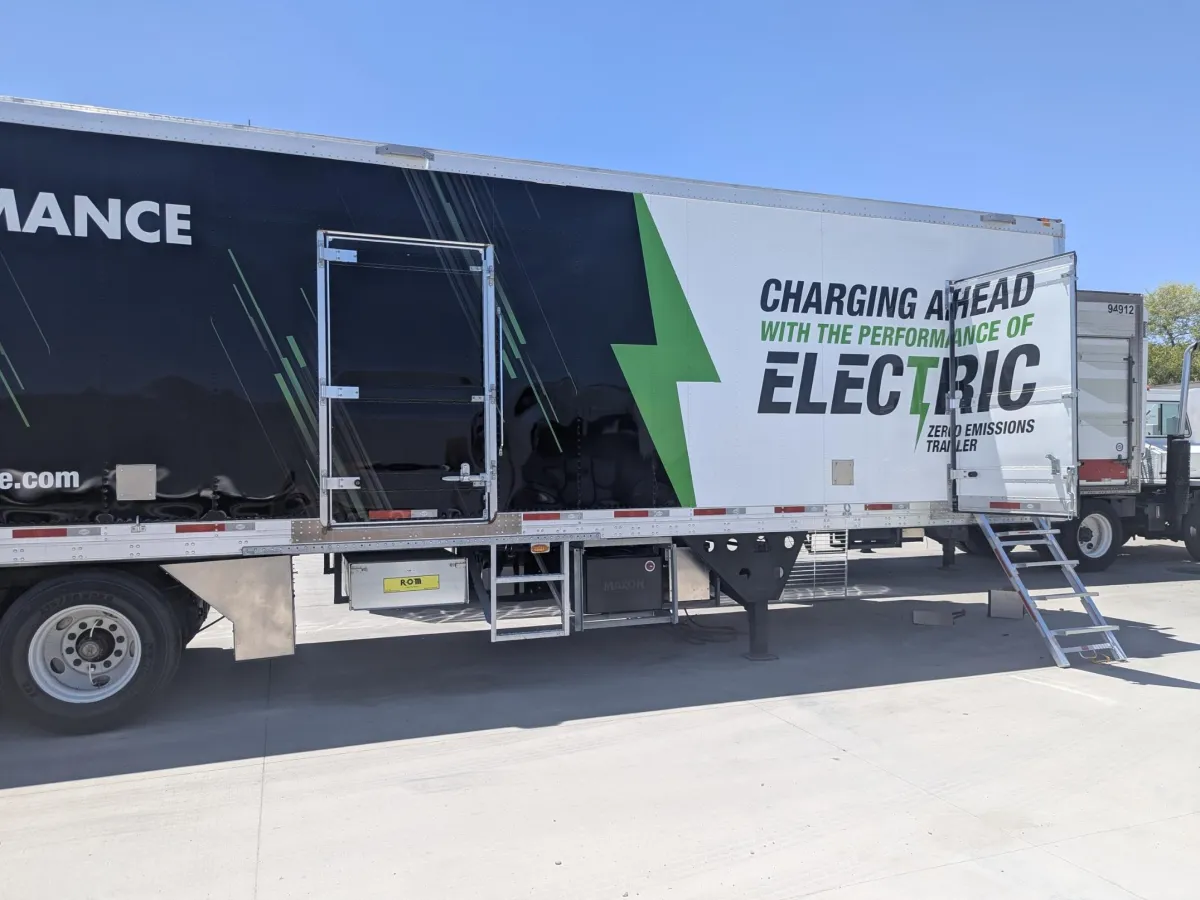
Decarbonization for Cold Storage and Food Delivery Starts Here
The Winning Carbon Reduction Strategy for Cold Storage and Reefer Fleets
Going Green with Immediate and Substantial Return on Investment

In the race to decarbonize food logistics and cold storage, two cutting-edge technologies are leading the charge: Michael's Energy Thermal Storage systems and Advanced Energy Machines’ (AEM) SolarTechTRU. Together, they form a brilliant, synergistic solution to kickstart any cold storage or food delivery operation’s carbon-reduction strategy.
Michael’s Energy has long been at the forefront of intelligent energy use, and their Thermal Energy Storage (TES) solution is no exception. TES works by shifting energy-intensive cooling to off-peak hours—typically when electricity is cleaner and cheaper. This process reduces peak demand charges and significantly cuts greenhouse gas emissions associated with daytime grid power [6].
Now, imagine pairing that with AEM’s SolarTechTRU—an all-electric, zero-emission transport refrigeration unit (TRU) that runs on solar power and a low-voltage direct current (DC) system. Unlike diesel-powered TRUs that contribute to urban air pollution and noise, SolarTechTRU offers a silent, clean alternative that eliminates range anxiety thanks to its integrated solar charging and battery storage.
While Advanced Energy Machines' SolarTechTRU has been deployed throughout California since 2012, and Michael's Energy has been more global in scope, they are both working together to solve much-needed carbon reduction (clean air) solutions in Hunt's Point New York, together.

Here’s how the two work together brilliantly:
Off-Peak Charging for On-Demand Cooling: TES can store cooling energy at night, and that stored “cold” can be used during the day when SolarTechTRUs are loading or offloading goods. This reduces the daytime electrical load on facilities and optimizes the solar system's use for fleet operations.
Grid Independence + Resilience: By combining onsite solar, TES, and DC-powered mobile refrigeration, operators can drastically reduce dependence on the grid, ensuring operations continue during outages or demand spikes.
Scalable, Modular Design: Both technologies are modular, making them perfect for startups or large-scale food distributors looking to scale sustainably.
Fast ROI & Incentive Compatibility: TES and SolarTechTRU installations qualify for various energy efficiency and solar tax credits, and together, they reduce operating costs—speeding up return on investment while improving ESG metrics.
Proven in the Field: AEM’s SolarTechTRU has already logged over 12 million zero-emission delivery miles with major national distributors, proving it can handle the demands of real-world logistics without compromising performance.
In summary, Michael’s Energy and AEM offer more than just energy-efficient hardware—they provide a blueprint for a smarter, cleaner food distribution system. Whether you're building a new cold storage facility or electrifying your delivery fleet, this combination is a no-brainer for operational savings, climate responsibility, and long-term resilience.
See Stan Nabozny, Director of Energy Solutions, of Michael's Energy Presenting at #ASHRAE this Wednesday!
Then, again in Chicago in October: #ASHRAE
Decarbonizing the Global Cold Chain: Integrating Thermal Energy Storage, Electrified Transportation and Carbon Accounting Track: Beyond Decarbonization: Flattening Utility Demand, Considering Resilience and More Room:
Promenade Ballroom Chair: Stan Nabozny, Director of Thermal Energy Consulting, Michaels Energy, La Crosse, WI, Robert Koelsch, CEO, AEM Green, Mesa, AZ, McGee Young, CEO, WattCarbon, San Francisco, CA and Bruce B Lindsay, PE, Life Member, Trane Technologies, Melbourne, FL The global cold chain is a critical component of food security, food distribution and industrial logistics, yet it remains one of the most energy-intensive sectors, heavily reliant on fossil fuels.
As electrification efforts accelerate, innovative strategies are needed to reduce peak electric loads, enhance grid flexibility and lower carbon emissions.
Thermal energy storage (TES) is a transformative solution for refrigerated warehouses and transportation, enabling facilities to shift cooling loads to off-peak hours. By decoupling refrigeration from real-time electricity demand,
TES enhances efficiency, reduces costs and strengthens grid resilience while supporting flexible demand management. Deployed in industrial cold storage, food distribution and transport refrigeration, TES provides a scalable, low-carbon pathway to decarbonizing the cold chain. Electrified transport refrigeration units (E-TRUs) for Class 8 vehicles provide scalable, emission-free alternatives to diesel-powered refrigeration. This seminar explores real-world adoption, infrastructure challenges and financial benefits.
To meet climate mandates, carbon accounting frameworks must verify Scope 2 and Scope 3 emissions reductions. This session introduces a system of record integrating refrigeration, transport and energy data, ensuring transparency and ROI from ESG initiatives.
This seminar presents a framework for decarbonizing the cold chain, sharing case studies and actionable strategies to support industry-wide adoption.
1.Decarbonizing the Global Cold Chain: Leveraging Thermal Energy Storage for Peak Demand Reduction and Grid Resilience Stan Nabozny, Director of Thermal Energy Consulting, Michaels Energy, La Crosse, WI
2.The Future of Electrified Transport Refrigeration: Reducing Diesel Dependence in Cold Chain Logistics Robert Koelsch, CEO, AEM Green, Mesa, AZ
3.Turning ESG Commitments into ROI: Carbon Accounting for Refrigeration and Logistics McGee Young, CEO, Watt Carbon, San Francisco, CA
Stan Nabozny, Director of Energy Solutions Direct: 713.702.4380
Robert Koelsch, CEO and Co-Founder Direct: 602-321-4733
